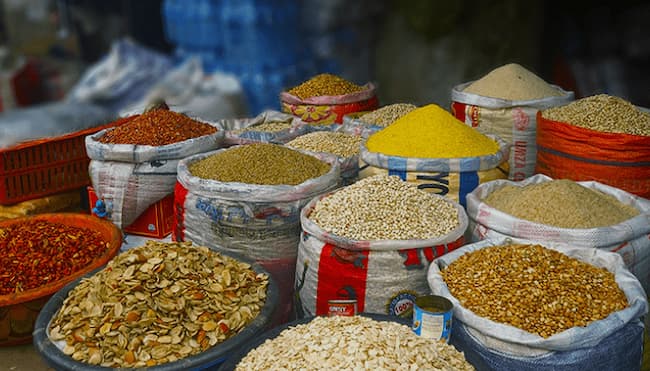Governors from Kwara, Taraba, Ondo, and Kogi states made a joint visit to the Federal Ministry of Agriculture and Food Security in Abuja on Monday. Their mission was to emphasize the urgency of ramping up crop production to safeguard food security in Nigeria and address rising food inflation and shortages.
Led by Abdulrahman Abdulrazaq, the Chairman of the Nigeria Governors Forum, the delegation stressed the importance of focusing on food security, highlighting Nigeria’s comparative advantage of having the cheapest food prices in West Africa.
Abdulrazaq acknowledged previous challenges with initiatives like the Anchor Borrowers Programme but expressed optimism in the agriculture minister’s current proposals focused on crops like cassava, rice, and maize. He emphasized the need to increase yields, improve productivity, and explore opportunities for food exportation.
The governors underscored the significance of collaboration between state governments and the federal ministry, noting a shift from previous years where engagement with the ministry was less productive due to the dominance of the Central Bank of Nigeria in agricultural matters.
In response, the Minister of Agriculture and Food Security, Abubakar Kyari, expressed gratitude for the governors’ support and highlighted ongoing efforts to enhance agricultural productivity across the nation. He emphasized the importance of year-round agricultural production to drive economic growth, reduce poverty, and ensure food security.
Kyari outlined plans for the second phase of the Dry Season Food Production Programme, seeking the governors’ cooperation in ensuring states’ readiness for optimal participation. He encouraged states to prepare land, provide support for farmers, and invest in mechanization and agricultural extension services.
The meeting concluded with a commitment to strengthening collaboration between the federal government and state governments to achieve sustainable agricultural development and mitigate food insecurity challenges.
















